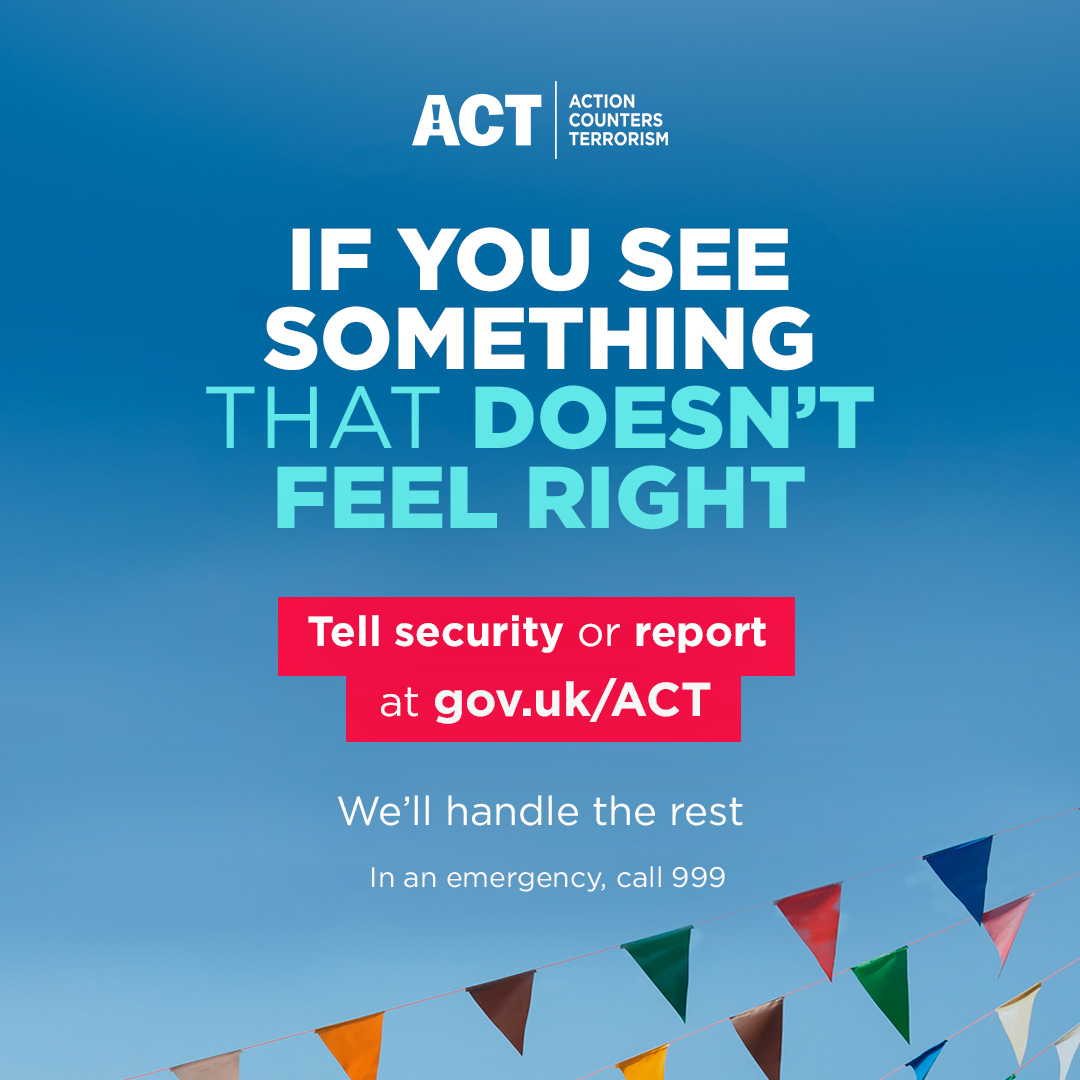Counter Terrorism and Keeping Safe in the Community
Counter Terrorism Policing (CTP) and local forces work throughout the year with businesses across the country to give advice and guidance on safety and security measures.
CONTEST is the United Kingdom’s counter-terrorism strategy and the council has specific duties to meet and to protect the public.
The public is asked to play their part by remaining vigilant while out and about. If you see or hear something suspicious trust your instincts and report any concerns to police, security or staff. Reports can also be made in confidence at www.gov.uk/ACT. In an emergency always call 999.
To learn more about the role that you can play in defeating terrorism, free online training is available. Taking just 45 minutes to complete, the online training provides the latest advice from CT experts, including how to react in the unlikely event of a terror attack and how to spot and report suspicious activity and behaviour.
There is also free online training for all members of the public on how to respond to a terrorism incident through the National Police Chiefs Council (NPCC) which has been devised by UK counter-terrorism officers and experts. The online course helps people spot suspicious behaviour or items and understand what to do in the event of a bomb threat or major incident.
